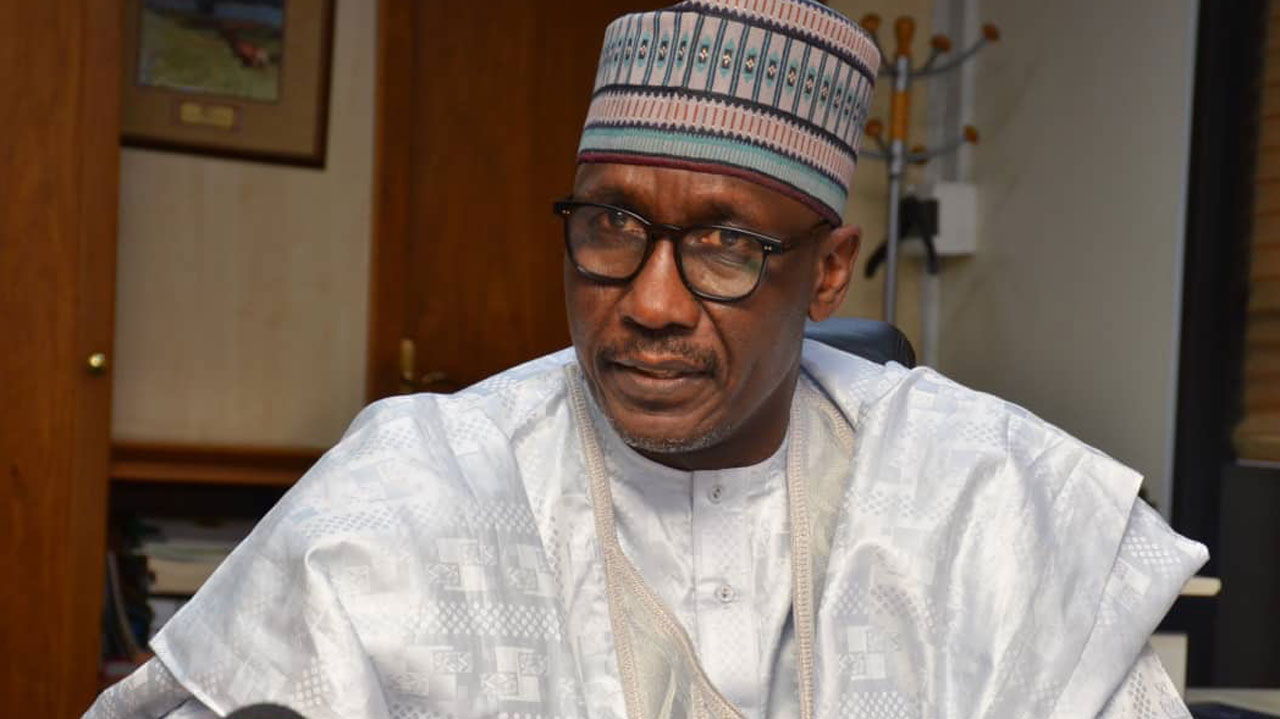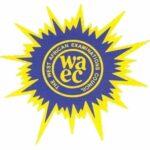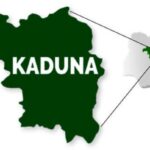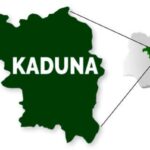The Port Harcourt Refinery will be ready before the end of the year, while those in Warri and Kaduna would start production next year, the Group Chief Executive Officer (GCEO), of the Nigeria National Petroleum Company (NNPC) Limited, Malam Mele Kyari, told Daily Trust.
He said this on Monday when he led his management team on a courtesy visit to the Abuja headquarters of Media Trust Group (MTG), owners of Daily Trust, Trust TV, Trust Radio and other platforms.
Nigeria had been importing petroleum products for decade, a development that kept depleting monies meant for critical economic interventions.
Trillions of naira had been spent on subsidies with experts saying such interventions were not in line with standard practices and therefore not sustainable.
Buhari commissions 40MW Kashimbilla hydropower plant
We don’t know Chibok girls’ whereabouts – Military
They, therefore, commended the NNPC for delivering on its promise to revamp the refineries, starting with the one in Port Harcourt and called on government to also provide enabling environment for private participation in oil refining.
While giving an update on the status of the refineries’ rehabilitation projects, Kyari said the Port Harcourt refinery (old and new), with a combined capacity of 210,000 barrels per day would have been ready this month but for some supply issues.
He said most of the challenges have been addressed and expressed optimism that with the completion of the rehabilitation and the coming on board of the Dangote Refinery in Lagos, Nigerians stand to gain more.
“Our plan is to bring it (Port Harcourt refinery) on stream this month but unfortunately, we have some slippage because of global supply chain issues that we had. We believe that this plant will come on stream before the end of this year. We’re very sure of that. The Port Harcourt refinery has a combination of 210,000 barrels per day so that means it’s a third of the Dangote refinery,” he told Daily Trust.
NNPC has a total refining capacity of 445,000 barrels in four refineries in three locations.
Kyari said rather than use public funds, money was borrowed for the rehabilitation of the refineries and their repayment tied to their performance.
“We’re also borrowing to fix the Warri and Kaduna refinery. Kaduna will kick up, it is a 36 months project but what happens in the rehabilitation is that you do them stage by stage. We will replicate the same thing in the Warri refinery and the contractor, Daewoo is on site working, mobilized to site, equipment being delivered to site and we believe also that within that 36 month cycle, it will also complete the rehabilitation.
“Port Harcourt will start producing fuel this year and by the first quarter of next year, Kaduna will start producing fuel,” the NNPC boss revealed.
He assured that the NNPC will complete the total rehabilitation to bring the refineries to a world class status, adding that the Kaduna refinery requires heavy crude for petrochemical products.
“So, the first plant can actually operate on Nigerian crude. And when you need the petrochemical component of it, you import the product but that’s not a problem, because we have very huge experience around importing heavy crude from Saudi Arabia and Iraq,” he said.
A source at the NNPC said the war in Ukraine in the aftermath of the COVID-19 disruptions was partly responsible for the slight change in the timeline for the completion of repairs of the Port Harcourt Refinery.
“Money is not a problem at all in this project. As you know, all countries around the world suffered in the aftermath of the coronavirus. At a time, the whole world was at a standstill and therefore, the movement of the equipment meant for the repairs was obstructed but definitely Nigerians would have a sigh of relief soon,” he said.
$2.7bn earmarked for rehabilitation of refineries
Daily Trust recalled that contracts for the repairs of the four refineries, with a combined capacity of 445,000bpsd were awarded in 2021 at the sum of $2.7bn.
The four refineries; Port Harcourt refinery (old and new), the Warri refinery and the Kaduna refinery have been comatose since 2017.
The Port Harcourt refinery complex was awarded to Tecnimont SPA, an Italian firm, at the sum of $1.4bn in March 2021.
Work for its completion was initiated in three phases, with the first phase slated within 18 months and expected to elapse in December 2022.
The contract for the rehabilitation of the Kaduna refinery was awarded together with that of the Warri refinery to Messrs Saipem SPA and Saipem Contracting Limited in August 2021 to the tune of $1.4bn.
Former Minister of State for Petroleum Resources, Timpere Sylva had said $897.6m will be spent to repair Warri refinery while Kaduna refinery will gulp $586.9m.
However, the project was later re-awarded to a South Korean company, Daewoo Engineering and Construction, with a reduced fee of $492.3m to complete the Warri refinery and $740.6 million for the Kaduna refinery.
Built in 1983 and 1988, the Kaduna and Warri Refineries have 110,000bpsd and 125,000bpsd capacity respectively and both operated below their optimal capacities until 2017.
Sources at the Kaduna refinery confirmed that the contractor had mobilised to site even though work has not fully commenced.
“They are mobilizing their staff and equipment to site. We were told that they will recruit indigenous people from the neighbouring communities. They are bringing in machines to the refinery constantly,” he said.
He added that there is enthusiasm around the community as they are hoping that business activities that have wound up due to the non-functioning of the refinery would pick up once again.
“The way things are going; we believe they mean well and hope they commence the work soon. They bring about three to four trailer loads of equipment daily,” he said.
Another source told our reporter that tankers had been hired to evacuate the old crude oil from a pit to another pit as they prepare for new crude oil.
“We were hired one month ago to evacuate the crude oil from one pit to another. We are paid N100,000 daily but it will take the next two months to complete this process,” he said.
By Simon E. Sunday & Faruk Shuaibu

 Join Daily Trust WhatsApp Community For Quick Access To News and Happenings Around You.
Join Daily Trust WhatsApp Community For Quick Access To News and Happenings Around You.


